Morale compass points in the right direction: Civil Service engagement in 2014
Positive overall results, but concern about pay.
The results from the 2014 Civil Service People Survey, the largest employee engagement survey in the UK, have just been published. The Survey asks civil servants from 101 organisations, including government departments, more than 70 questions about what they think about their jobs and their employer. Gavin Freeguard analyses the latest results, which show most numbers heading in the right direction.
The Civil Service Engagement score is now 59%, 1 up on 2013. 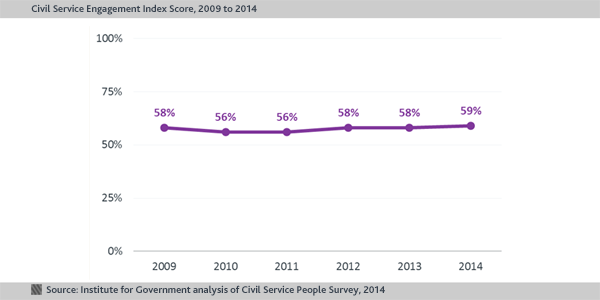
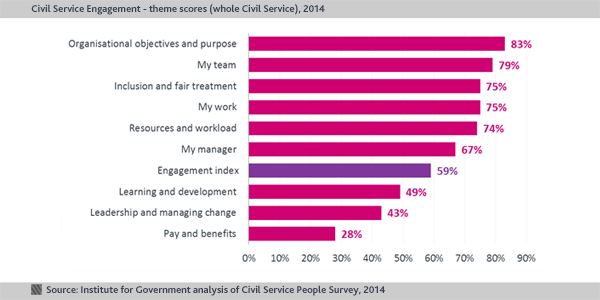
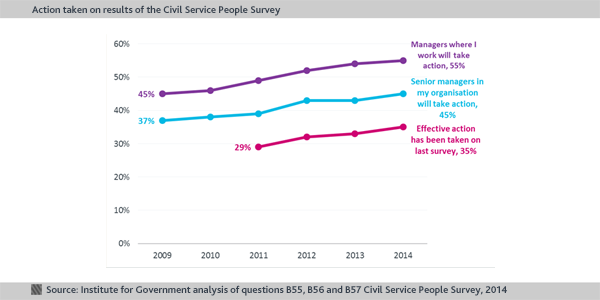
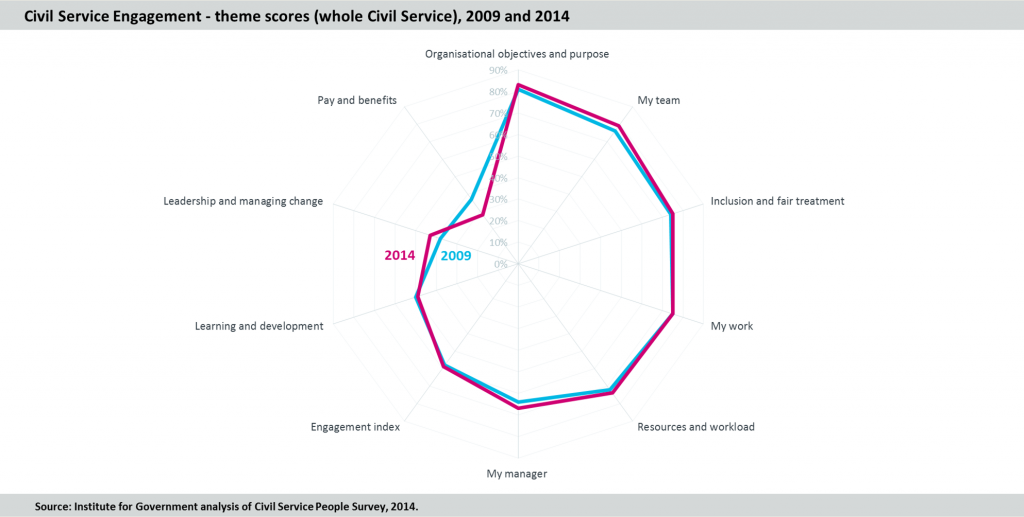
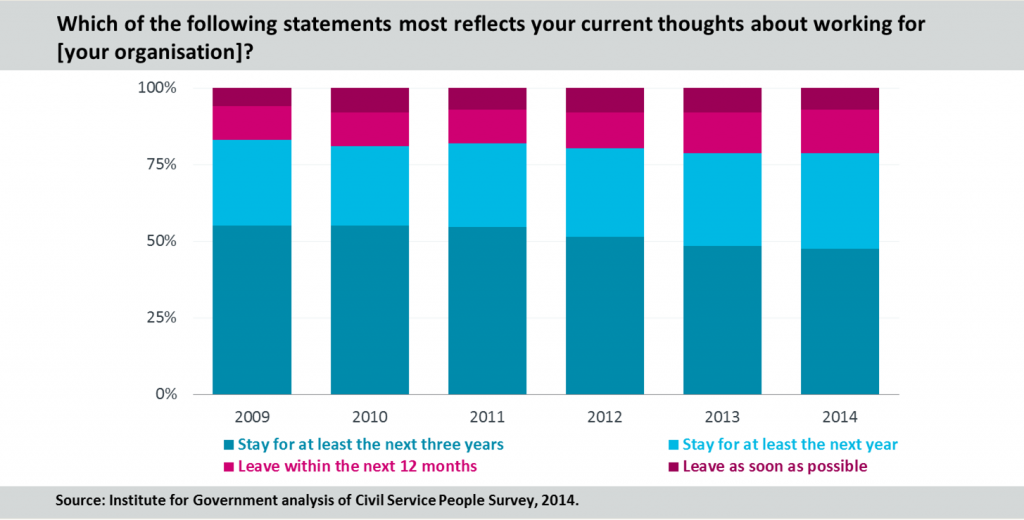
- Topic
- Civil service
- Keywords
- Civil servants
- Administration
- Cameron-Clegg coalition government
- Publisher
- Institute for Government